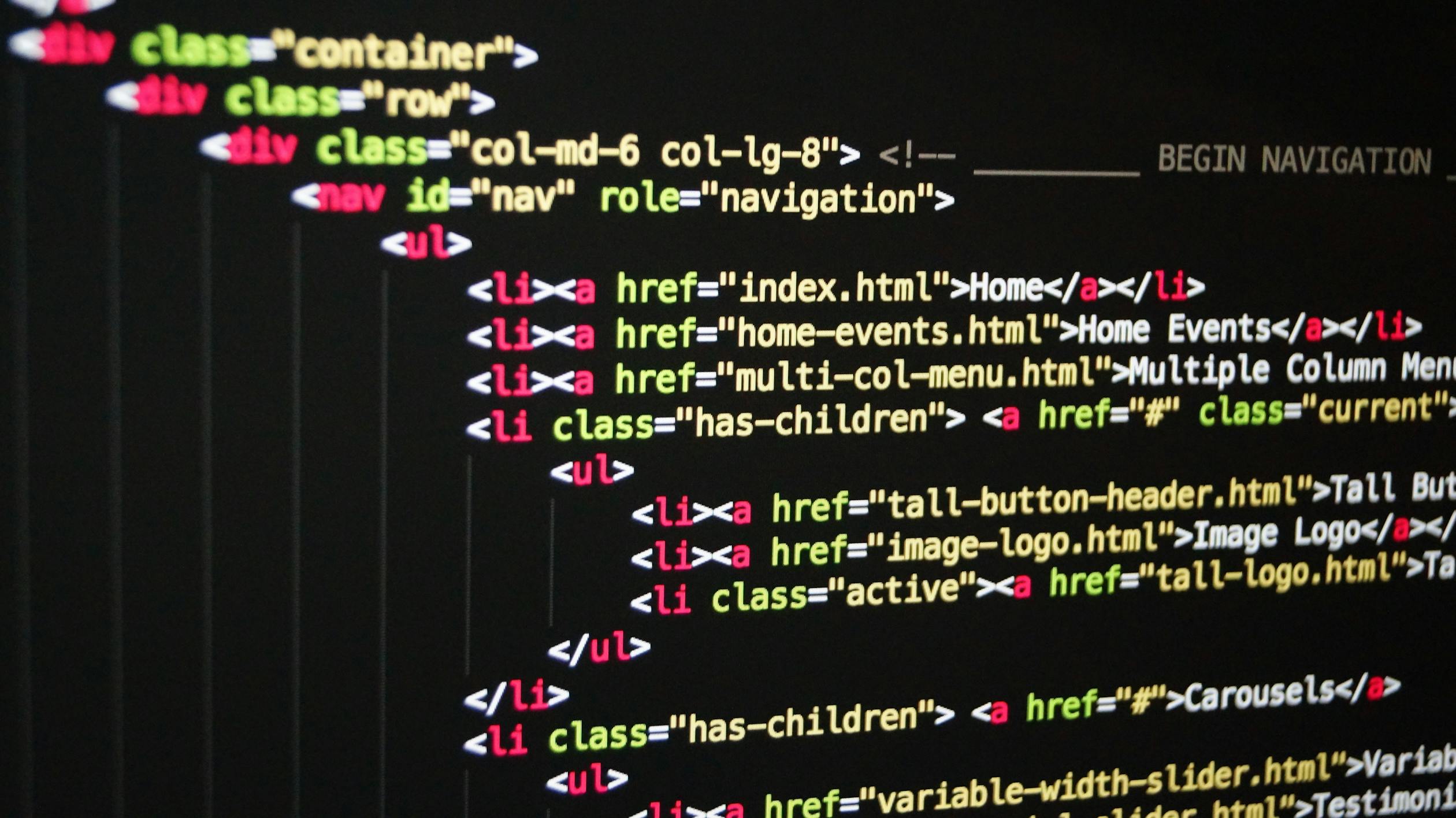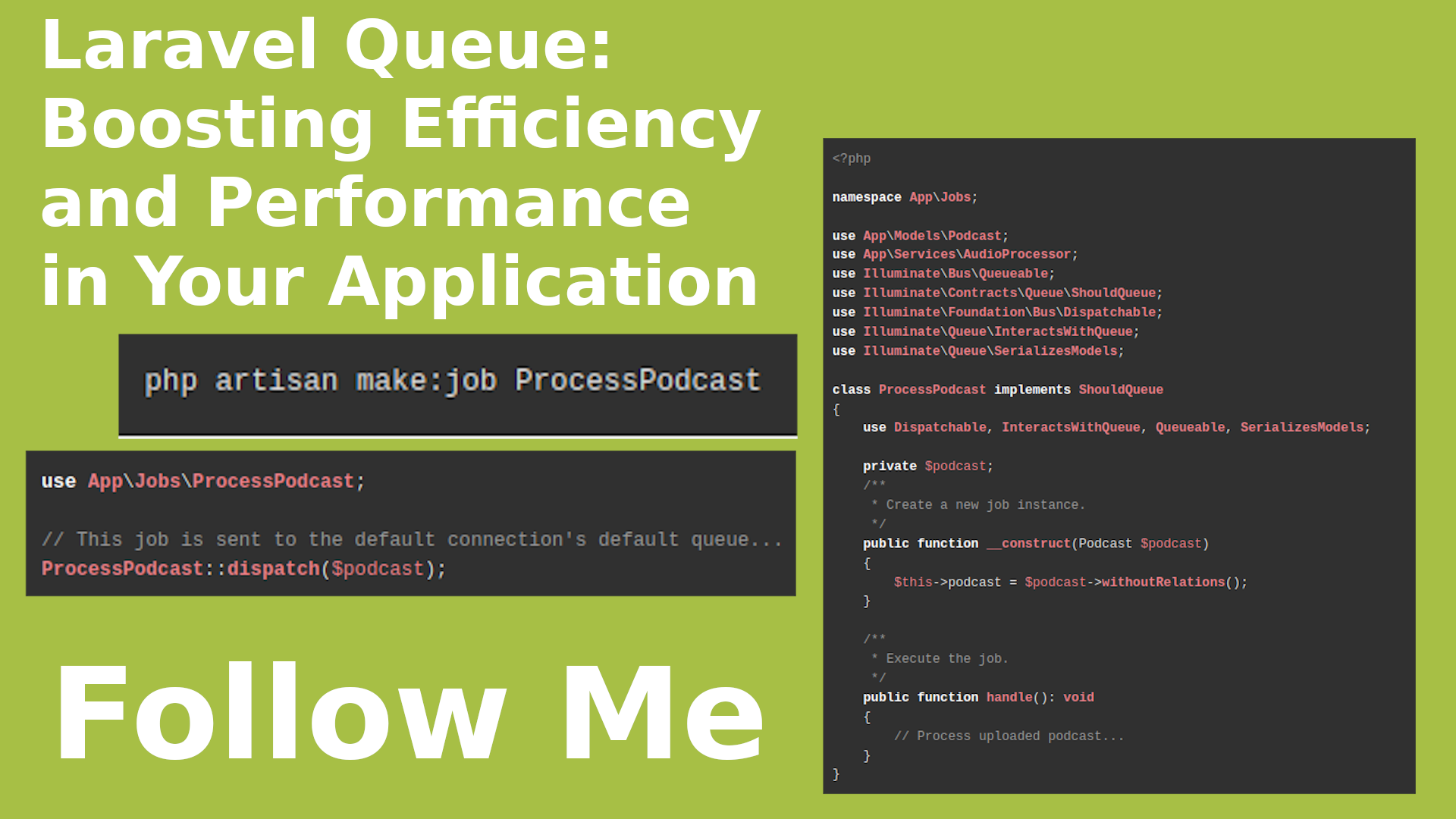
August 29, 2023
Laravel Queue: Boosting Efficiency and Performance in Your Application

In today's fast-paced digital world, where users expect instant responses and flawless performance, it is essential for your web application to be highly efficient and responsive. One surefire way to boost your application's efficiency is by leveraging the power of Laravel Queue.
Laravel Queue is a powerful tool provided by the Laravel framework for managing and efficiently processing time-consuming tasks in the background. It allows developers to defer time-consuming operations, such as sending emails, processing large data sets, or interacting with third-party APIs, to free up resources and optimize performance.
So, how does Laravel Queue work?
The process is quite simple but highly effective. When a user triggers an action that requires a time-consuming task, instead of executing that task immediately, Laravel pushes it into a queue. The task is then executed by a worker process running in the background, leaving the application free to perform other critical operations.
Here are a few key benefits of using Laravel Queue in your application:
- 1. Enhanced Performance: By deferring time-consuming tasks to a background queue, your application's performance and response times are significantly improved. This ensures a smooth user experience, even during heavy traffic or when facing computationally intensive operations.
- 2. Scalability: The Laravel Queue system is built to scale effortlessly, allowing you to handle a large number of concurrent tasks without any major performance penalties. You can easily scale up or down the number of worker processes based on your application's requirements.
- 3. Improved Robustness: The separation of time-consuming tasks from the main application process creates a more robust setup. If any of the worker processes fail or encounter an error, it will have minimal impact on the main application. Laravel Queue provides monitoring and retry mechanisms, allowing failed tasks to be retried until successful execution.
- 4. Simplified Codebase: Laravel Queue provides a clean and straightforward API for managing queues and dispatching jobs. It allows developers to decouple time-consuming tasks from the main codebase, keeping the application code clean, maintainable, and easy to test.
- 5. Integration with Queuing Systems: Laravel Queue seamlessly integrates with popular systems like MySQL, Redis, Beanstalkd, and many others. This flexibility allows you to choose the underlying queuing system that best suits your application's requirements.
Implementing Laravel Queue in your application is a breeze.
Start by creating a Job
Lets suppose that you want to avoid making the user wait for the podcast to process on the server, you can create a job by executing the following command:
php artisan make:job ProcessPodcastLaravel will generate something like this:
<?php
namespace App\Jobs;
use App\Models\Podcast;
use App\Services\AudioProcessor;
use Illuminate\Bus\Queueable;
use Illuminate\Contracts\Queue\ShouldQueue;
use Illuminate\Foundation\Bus\Dispatchable;
use Illuminate\Queue\InteractsWithQueue;
use Illuminate\Queue\SerializesModels;
class ProcessPodcast implements ShouldQueue
{
use Dispatchable, InteractsWithQueue, Queueable, SerializesModels;
private $podcast;
/**
* Create a new job instance.
*/
public function __construct(Podcast $podcast)
{
$this->podcast = $podcast->withoutRelations();
}
/**
* Execute the job.
*/
public function handle(): void
{
// Process uploaded podcast...
}
}In the handle method, you have the ability to process the podcast that has been uploaded. Additionally, you can also send a notification email to the user once the podcast has been completelly processed.
The final part is to dispatch this job
You can dispatch a job directly in the controller, but to maintain a more lightweight and easily understandable controller, I recommend dispatching the job in the service. In order to do so, you can utilize the following code:
use App\Jobs\ProcessPodcast;
// This job is sent to the default connection's default queue...
ProcessPodcast::dispatch($podcast);This job will be added in the default queue and processed in backend.
To conclude, Laravel Queue is a valuable addition to your Laravel application, enabling you to boost performance, improve scalability, and simplify code maintenance. By deferring time-consuming tasks to a background queue, you create a more efficient and robust application, capable of handling high traffic and complex operations with ease. Embrace Laravel Queue, and let your application shine with stellar performance.
880 views
